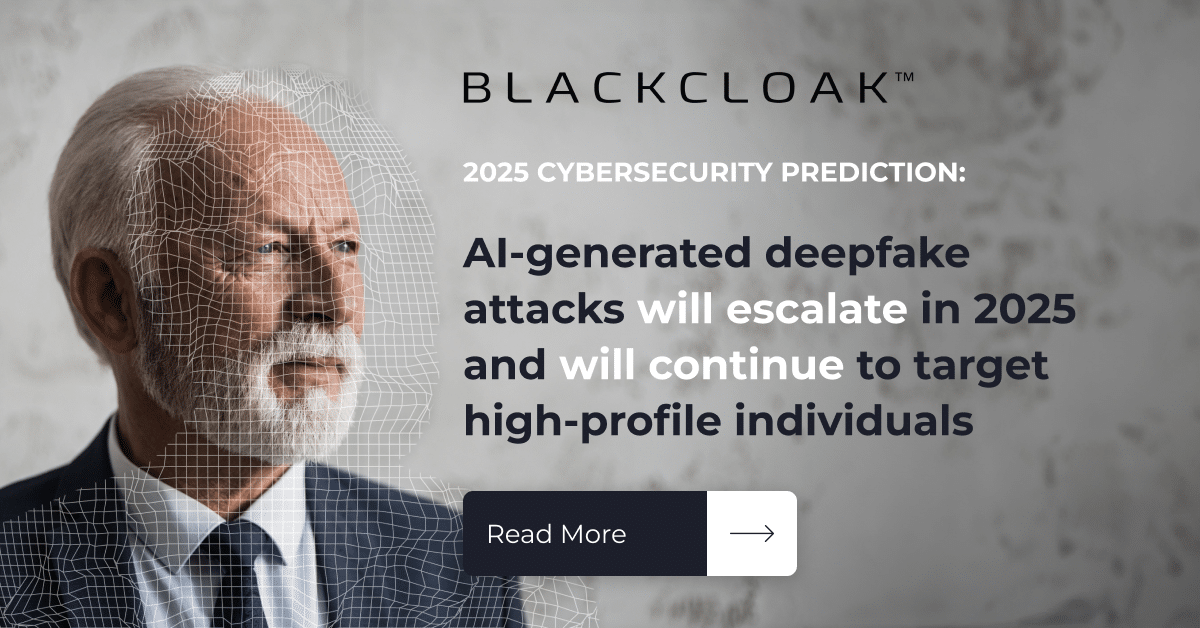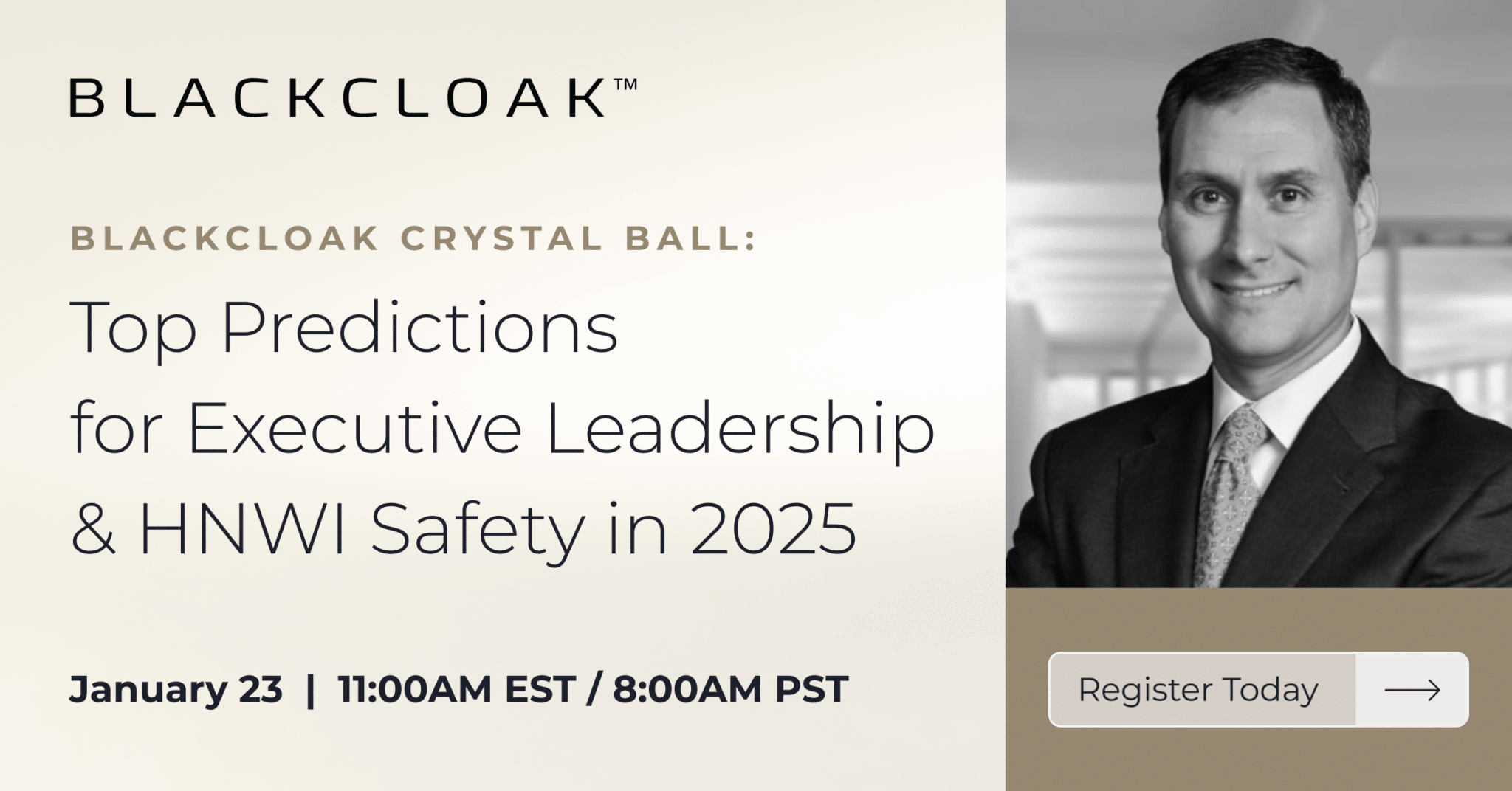2025 Prediction 2: The Rise Of AI-Generated Deepfake Attacks Will Escalate In 2025 And Will Continue To Target High-Profile Individuals

On January 7, we published a press release to share our five predictions for cybersecurity in 2025. Over the next few weeks, we’ll publish a blog series that provides additional commentary on each prediction. This is the second blog in the series. Check out the first one here.
Prediction Key Takeaways:
- AI-powered tools like deepfakes may shift cybersecurity challenges in 2025, exploiting human vulnerabilities over technical flaws. Proactive measures will be crucial to counter emotional manipulation tactics.
- These attacks will focus on the personal lives of corporate executives, leveraging fabricated videos or audio to evoke emotional responses. For example, a fake video of a distressed family member or a fabricated audio clip of an executive’s voice discussing sensitive topics can prompt immediate and impulsive actions, such as transferring funds or sharing confidential information. Attackers bypass corporate defenses through social engineering by targeting personal vulnerabilities rather than technical systems.
- While companies have fortified digital assets, they must now address the personal digital security of executives and their families and guard against sophisticated AI-driven social engineering attacks.

The subsequent big corporate breach won’t start with a phishing email or a compromised password. It’ll begin with the CEO’s daughter posting what looks like a desperate video message asking for help. Or it’ll be a convincing audio clip of the CFO discussing insider trading on a private call. The era of deepfakes is upon us, and it’s targeting the most human elements of corporate security.
While corporations have spent decades hardening their networks, training employees to spot suspicious links, and enhancing security around their digital assets, they have largely overlooked the personal lives of their executives. These leaders, who are privy to billion-dollar decisions and sensitive corporate data, are increasingly vulnerable through their families, private communications, and personal relationships.
Artificial Intelligence has evolved to the point where a cybercriminal could generate a convincing, deep fake video of a CEO’s spouse in a compromising situation. This could trigger a panicked response that bypasses standard security protocols. A synthetic voice message from what sounds exactly like a board member’s child could prompt an urgent wire transfer. These aren’t far-fetched scenarios — they’re the logical evolution of social engineering attacks, supercharged by AI that can now mimic voices after just three seconds of audio samples.
What makes this threat particularly insidious is how it exploits our strongest instincts. We don’t run it through a verification protocol when we hear our child’s voice in distress. When we see our spouse in trouble, we don’t stop to authenticate the video source. We react – which is exactly what attackers are counting on. They know that even the most security-conscious executive becomes vulnerable when the attack vector is personal.
While a traditional response would include more training, protocols, and layers of verification, these responses do not account for the human emotion inherent in this type of attack. The deep fake problem isn’t just a technology issue—it’s a human one. As a result, corporations must fundamentally rethink how we approach executive security.
But how can corporations protect against “deep fakes?” The best solution might not be the most clever technology, but the solution that addresses the behavioral vulnerabilities. We are seeing such an acceleration in the pace of AI innovation that we can’t predict what comes next. If a corporation’s defense strategy is based on its ability to detect AI, then the attacker’s technical sophistication will typically outpace that strategy. AI enables attackers to bypass corporate barriers and in their homes.
Stay tuned for our next prediction!
We also have a webinar coming up on January 23 to discuss our predictions live with industry experts. View now.









